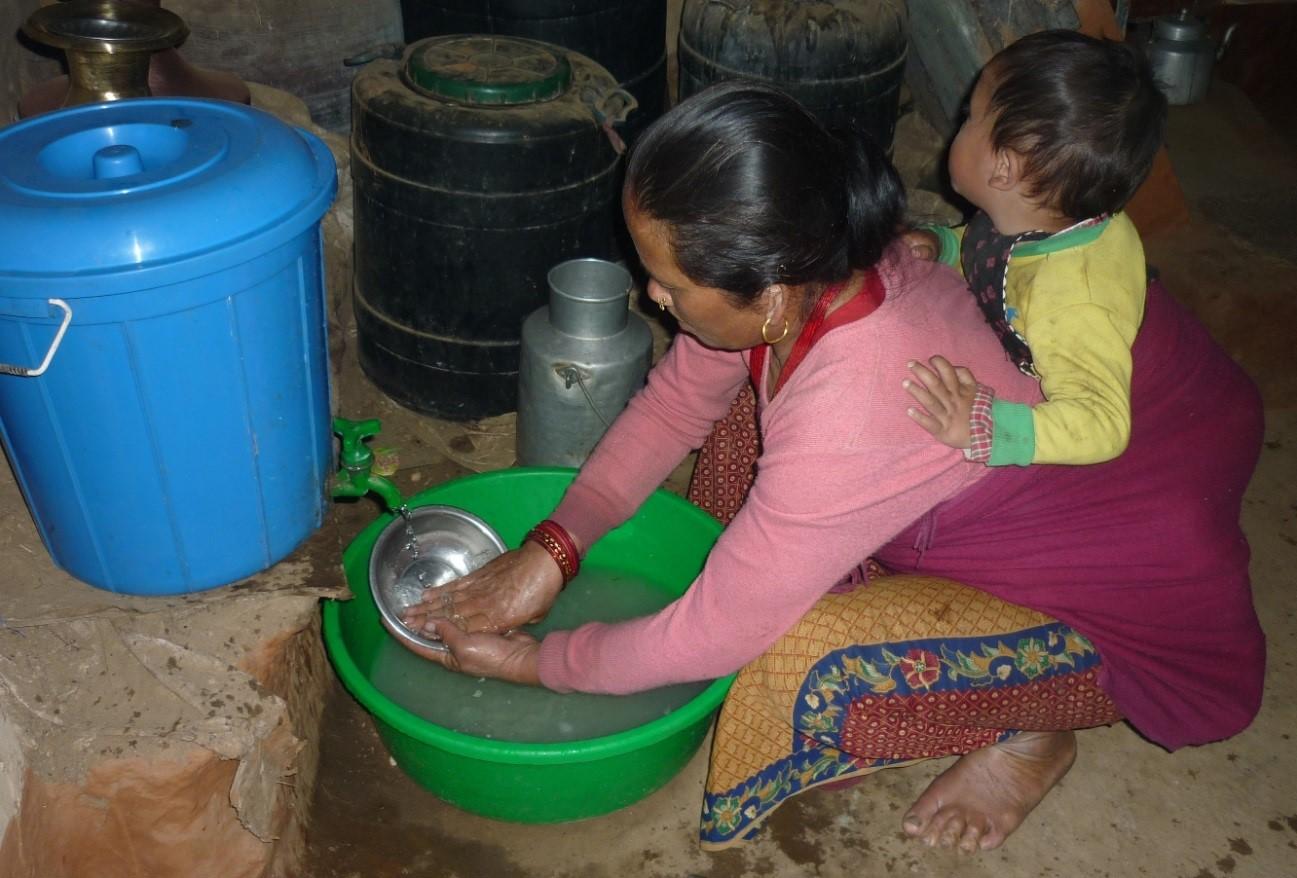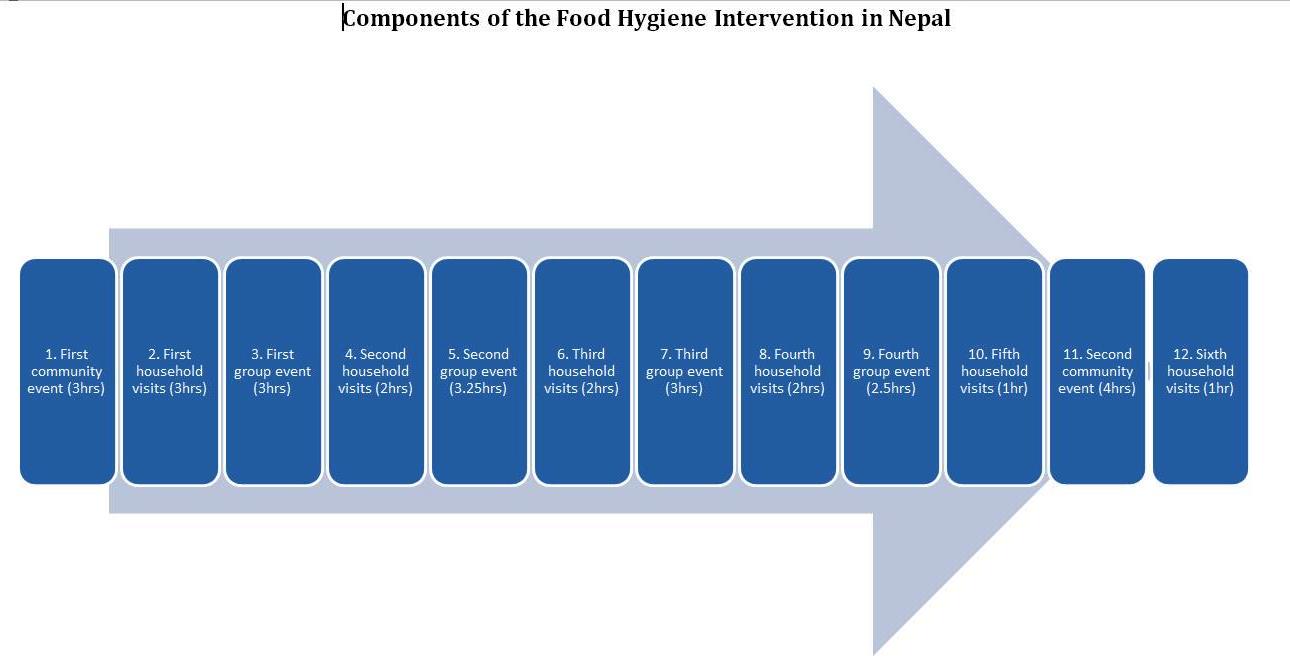Om's Food Hygiene Intervention - August 2014

I’ve been quiet for the last few months as I’ve been busy analysing and writing-up my trial papers which will be submitted for publication soon. I am back now though to bring you the latest updates from the food hygiene intervention in Nepal.
I hope you had a chance to check out the preliminary findings of the trial which I published in poster format a couple of months ago. This month, I’d like to share with you the core components of the food hygiene intervention I designed which aimed to improve food hygiene behaviours and reduce food contamination and the diarrhoeal disease burden in Nepal.
How was the campaign carried out?
The campaign exposed mothers, with children aged 6-59 months, to a food hygiene intervention which was comprised of six community/group events and six household visits. Each event/visit had a specific goal such as: raising awareness of and eliciting commitment to the campaign, reinforcing desired behaviours/programme rituals/food hygiene behaviours, establishing group norms/habits, and ensuring the sustainability of the campaign.

These goals were to be achieved through varying activities which themselves were linked to key motivational themes. The activities included but weren’t limited to: storytelling and motivational games, the introduction of an ‘Ideal Mother’ figure, the demarcation of kitchens with ribbons, flags and eye-level danglers reminding mothers of the five key food hygiene behaviours, screening of a brief video, the installation of the programme jingle as a ring-tone on mothers’ mobile phones, the use of glo-germs and 3M PetriFilm to demonstrate contamination, public pledges of commitment to the campaign, the launch of three competitions – the ‘Clean Kitchen Competition’, the ‘Ideal Mother Competition’ and the 'Safe Food Hygiene Zone Competition' – and public reward ceremonies.
Other tools used in the intervention and a further campaign video will soon be published, so watch this space!
